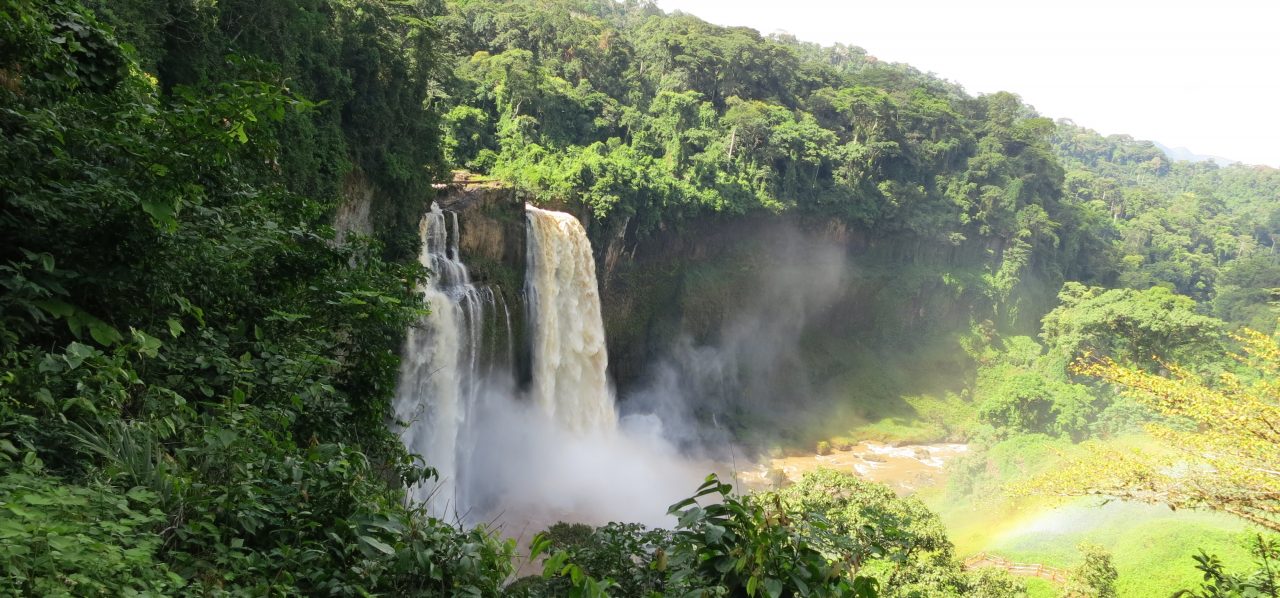
I had to share with you this Feb. 16, 1959 Time Magazine gem of an article on President Sekou Toure of Guinea, the first country to say ‘NO’ to France. As you will see, even the so-called ‘dictators’ of the world have graced the cover of Time Magazine when they were still ‘deemed’ good. Some of the article is a bit a mockery of Africans for wanting independence from their colonial masters, as it is referred to as ‘haste’ in the article (could you really have faulted Africans for wanting freedom?). Enjoy! The full article can be found at: WebGuinee.net. Below are a few words.
==============
Finally, Sékou Touré, 37 President of the new Republic of Guinea, a trim figure in a European busine suit, rose and raised his arm.
“Vive l’indépendance!” he shouted, and three times the crowd roared back, “Vive l’indépendance!” “Vive l’Afrique!” he shrieked in a voice close to frenzy. Once again, the cry was three times repeated. There was no reason for Touré to do more. The crowd had seen and heard him, and that was enough.

Broad-shouldered and handsome. Sékou Touré is as dynamic a platform performer as any in all Black Africa. He is the idol of his 2,500.000 people, and the shadow he casts over Africa stretches far beyond the borders of his Oregon-sized country. As the head of the only French territory to vote against De Gaulle‘s constitution and thus to choose complete independence, he has been suddenly catapulted into the forefront of the African scene. ….
Part dedicated idealist and part ruthless organizer-perhaps the best in Black Africa-Guinea’s Touré should have problems enough just coping with the disruption that inevitably came with independence. But he, too, has dreams as wide as a continent. “All Africa,” says he, “is my problem.”

In a sense, he was born in the right place and with the right ancestry to favor a big role. Though Africa was, until the Europeans came, the continent that could not write, it had known its times of glory. Guinea was once part of the powerful Mali Empire that stretched from the French Sudan, on the upper reaches of the Niger, to just short of West Africa’s Atlantic Coast. When its 14th century ruler, the Mansa (Sultan) Musa, made his pilgrimage to Mecca, he traveled with a caravan of 60,000 men, and among his camels were 80 that each bore 300 lbs. of gold. … he turned the fabled city of Timbuktu into a trading center and a refuge for scholars. … But the legend lived on of the warrior Samory, whom Sékou Touré claims as his grandfather.

When De Gaulle stopped off at Conakry on his swift tour of Africa before the referendum, Touré thundered in his presence: “We prefer poverty in liberty to riches in slavery.” Angrily, De Gaulle canceled a diner in time he was to have had with Touré, and the split was final. A few weeks later, 95% of the people of Guinea voted no to the De Gaulle constitution.


The semantics in this article reek of racism. It’s very backhanded. Africa couldn’t write? Explain nsibidi, meroetic script, ge’ez, the now lost and unreadable scripts found in south Africa on ostrich shells, etc. “before Europeans came” LOL! Before Europeans came, Arabic culture mixed in and Africans developed ajami to fit Arabic letters to African languages. The time is now to leave the 20th century’s fog of hatred. No such thing as black Africa just as there’s no such thing as yellow Asia.
LikeLike
Good point. It is that continued technique of ‘divide and conquer’, i.e. black Africa, white Africa, Maghreb, etc… so that we never realize that Algeria for instance went through wars of independence against the French colonial master the same way Cameroon or Madagascar did. It is interesting to read these Time magazine articles years afterward, and catch all these semantics such as “the continent that could not write”, and realize how much of African history has been skewed, distorted, and erased through such techniques, such that you will find Africans themselves claiming “our tradition is only oral”. As you said: it is high time to “leave the 20th century’s fog of hatred.”
LikeLike